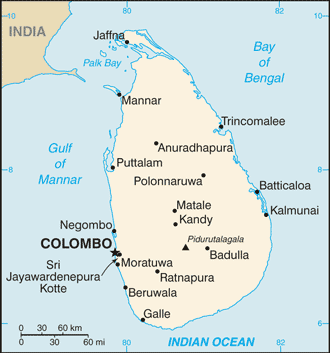Last week I wrote a piece about “The State of the Right.” It’s inspiration were two essays, one from edgelord Gavin McInnes, the other from fellow blogger photog of Orion’s Cold Fire. photog has done real yeoman’s work on teasing out the strands of the Right today, and he’s followed up that effort with a prescient essay, “Identity Politics and Civic Nationalism – Part 1.” It’s the first in an interesting series exploring the friction between two major factions of the Right, broadly-defined, too: the increasingly race realist Dissident Right, and the more traditional “BoomerCon” civic nationalist Right.
The former group has been very active since the 2015-2016 Trump Ascendancy, reading various intentions and motivations into the Trump campaign’s tough stance on immigration and border control. As photog points out, the Dissident Right is the group that had the guts to call out neocons as Leftists-in-Conservative’s-Clothing. Essentially, Bush-era neocons were playing into the progressive’s frame: embrace massive and/or illegal immigration, dole out protections or favors to our preferred tribal interests, and we’ll give token conservatives a few crumbs from the dinner table.
The latter group, which photog defines well in his essay “What’s Right,” is not as active online as the Dissident Right, but is far more numerous. These are the folks who love God and country, and want to see America strong and secure. Civic nationalists believe that race and biology are not essential barriers to achieving the American Dream; rather, anyone who works hard, assimilates, and respects the Constitution can do well. That understanding dominated postwar America, and when Leftists have pushed identity politics too far, the “Silent Majority” has risen up to push back.
In photog’s reading, Trump’s election was not, then, the triumph of the Dissident Right race realists; instead, it was the triumph of the silent CivNats pushing back against progressive tribalism. Just like Nixon in 1968 and 1972 and Reagan in 1980 and 1984, millions of normal, traditional Americans rose up in 2016 against looming Leftist disorder and chaos.
The argument of the Dissident Right is that all the racial division and social breakdown we’ve seen in America is proof that different races and cultures cannot long function together in a healthy body politic.
Civic Nationalist, on the other hand, argue that government policies like affirmative action and paternalistic welfare systems encourage tribalist, racialist thinking, essentially ghettoizing certain groups (often along racial lines). America is nation of ideas, not blood. A key example is how the “post-racialist” Obama Administration exacerbated racial tensions through its policies.
President Obama’s Justice Department, headed by racemonger Attorney General Eric Holder, significantly worsened race relations in the United States every time “police violence” claimed a black man’s life: rather than treating such incidences on a case-by-case basis, the Obama DOJ aggressively, publicly supported the view that “systemic racism” was the cause of the attacks. A compliant media spun narratives like “hands up, don’t shoot.” With cops second-guessing their every interaction with a potential black suspect, many just stopped doing their jobs effectively, breeding more criminality in black neighborhoods—further “proof” that the system was “rigged” against blacks.
Most Americans reacted to these shootings with sympathy, naturally, but as the details began to trickle out, many of them were not as they appeared. Michael Brown of Ferguson, Missouri was not the “gentle giant” the media portrayed, but a dangerous felon. The police shooting in Charleston, however, was a legitimate example where police went too far, though it’s not, logically, proof in and of itself of “systemic racism,” or even individual racism.
Regardless, the CivNat argument is that race is incidental, not a determining factor in one’s ability to participate in the grand experiment in self-government.
So, who is correct? Like most things, there is truth to be found among both groups. The Civic Nationalist wing of conservatism is often slow to react and is generally complacent in its slumber, but it won’t abide consistent tomfoolery or wickedness for long.
The Dissident Right, on the other hand, is willing to come out swinging at the myriad problems facing the nation today, particularly immigration. They argue—I think, correctly—that we can’t swamp our nation with millions of unassimilated Third Worlders from peasant cultures that have no interest in, or even thoughtfulness about, our nation or its values. Like it or not, Anglo-Saxon jurisprudence came out of, well, Anglo-Saxons, and it took hundreds of years to develop ideas like constitutionalism, rule of law, self-governance, separation of powers, etc.
That said, I don’t think the Dissident Right is correct that only white Anglo-Saxons can enjoy the fruits of the grand British tradition (although such patrimony seems better equipped to avoid tribalism). The history of America suggests otherwise. Millions of Americans of every skin color and culture have managed to assimilate into American culture (if anything, black Americans are the biggest example of the failure to assimilate, but that’s for complicated historical and cultural reasons, not to mention persistent legal action to separate blacks from the rest of American society for a hundred years after emancipation).
Tribalism, however, is a very real phenomenon, and a dangerous one. The Dissident Right gets this correct as well. If you transported all of El Salvador to Kansas today, the people wouldn’t suddenly become restrained corn farmers participating in quilting bees and box socials; they’d be El Salvadorans, their distinct cultural and national rivalries still playing out in bloody gang violence. Take ten El Salvadorans, however, and spread them throughout the country, and they’ll have no choice but to assimilate.
What photog and I both reject, then, is the Dissident Right’s solution to our problems, which is, simply, to embrace identity politics and tribalism for whites—use the same tactics of the Left to get carve-outs and special favors for white Americans. That seems like a surefire way to increase, not decrease, racial tension.
To close out this lengthy, meandering post, here is photog himself, on asking “Are [the Dissident Right] right?”:
I prefer to think that they’re not. My read on this is that the situation has been exacerbated by Republican “leaders” who actually seem to buy into the fairness of minority identity politics out of some kind of ancestral guilt or because they see electoral advantage in joining the progressives. The proof of this can be seen in the success of a civic nationalist like Trump who isn’t guilted into kowtowing to illegal immigration out of fear of being called a racist. Once you disarm the Progressives of that weapon you find out that the majority of Americans, even in Blue States, want immigration laws to be obeyed.
I contend if the Right forcefully advocates for full enforcement of immigration laws and the elimination of reverse discrimination policies by the government and other entities, it will go a long way toward lowering tensions between the various groups living in the United States and will allow people to start thinking of each other as neighbors and not potential enemies.
photog and I, like many Americans, are walking a fine line between the truthful claims of the Dissident Right and the Civic Nationalists. Both camps have much to offer, and the Dissident Right has been on the front lines of the Culture Wars the past three or four years. The two factions can work together to reinvigorate conservative thought, to shake it loose from the dogma that’s dominated it since the end of the Second World War.
That said, that dogma, too, contains useful bits. The point, then, seems to be that we should always be pondering what is truthful, good, and useful. The neocons tossed fuel to the fire when they endorsed increase immigration and turned a blind eye to illegal immigration. The Dissident Right and the Civic Nationalists can both agree that rolling back illegal immigration and limiting legal immigration, at least for a time, will be beneficial for the nation as a whole.










